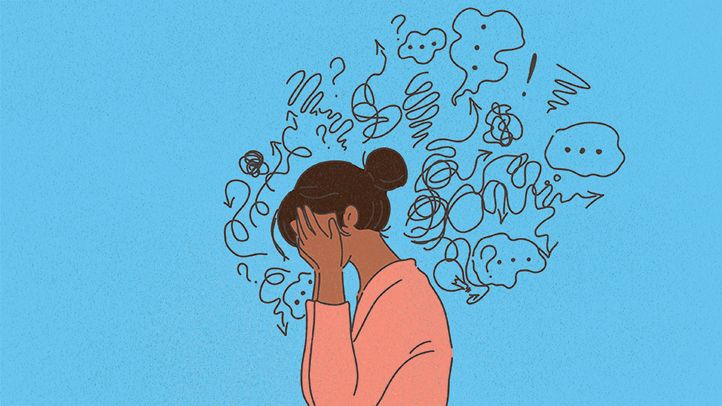Depression is a serious mental illness that can affect anyone at any time. If you’re struggling with depression and need help, there is help available. In this comprehensive guide, we will discuss the signs and symptoms of congruent depression. We will also explain what treatments are available, and provide advice on how to get started. So if you’re feeling down and stressed, don’t hesitate to reach out for help!
Contents
What is Congruent Depression?

Congruent depression is a specific type of depression that occurs when a person experiences symptoms that are consistent with both major depressive disorder and dysthymia. For example, someone with congruent depression may experience feelings of sadness and loneliness. This as well as a decrease in energy and motivation.
People with congruent depression often have a harder time distinguishing between the two disorders, as well as a harder time seeking help. Because congruent depression is often a symptom of two more serious conditions, it can be difficult to diagnose and treat. This type of depression is also more likely to recur.
Different Types of Congruent Depression

There are many types of depression, but all of them have some common features. In this paragraph, we’ll discuss what causes each type of congruent depression and give you a comprehensive guide on how to cope with it.
Types of Congruent Depression:
Major Depressive Disorder (MDD
This is the most common type of depression, and it affects around 37% of people at some point in their life. People with MDD usually experience an intense downward spiral, where their mood fluctuates dramatically and they lose interest in activities they once enjoyed. This type of congruent depression is also a common symptom of other mental health conditions, such as anxiety and bipolar disorder.
If you’re struggling with MDD, there are a few things you can do to improve your well-being. First, talk to your doctor about any underlying medical conditions. Second, try to follow a healthy lifestyle and make sure you get plenty of exercises. Third, find a support group or therapist who can help you cope with your condition.
Seasonal Affective Disorder (SAD)
This type of congruent depression is common in people who live in colder climates during the winter months. It’s also more common in women than men, and it usually starts around the age of 25. SAD is characterized by a drastic change in mood – usually from a high note in the summer to a low note in the winter – and decreased energy levels.
There isn’t much you can do to treat SAD on your own, but it can be treated with light therapy or medication. If you’re experiencing severe symptoms, see your doctor for a referral to a specialist.
Cyclothymic Disorder (CYCD)
This type of congruent depression is common in young adults and typically starts after a traumatic event. It’s often characterized by alternating periods of high and low mood, as well as cycling between being active and lethargic.
There isn’t much you can do to treat CYCD on your own, but it can be managed with medication or therapy. If you’re experiencing severe symptoms, see your doctor for a referral to a specialist.
Bipolar Disorder
Bipolar disorder is a serious mental health condition that affects around 2% of the population. People with bipolar disorder experience extreme mood swings – called phases – which can last for weeks or months at a time. During one phase, people may be manic (having an elevated mood and excessive energy), while during another phase they may be depressive (having a low mood and decreased energy).
Non-Conforming Depression
Non-conforming depression is less common than the other types of congruent depression, and it’s typically seen in people who don’t fit the traditional definition of a depressive person. People with non-conforming depression usually have a normal mood most of the time, but they can experience episodes of severe depression that don’t follow the classic pattern.
Non-conforming depression is often difficult to diagnose and treat, but there are a few things you can do to improve your well-being. First, make sure you have a healthy diet and get plenty of exercises. Second, find a support group or therapist who can help you cope with your condition.
Symptoms of Congruent Depression

There are many signs and symptoms of a person being depressed. Some of the more common signs and symptoms are:
Feelings, empty, or hopeless most of the time
One of the most common signs of depression is a feeling of emptiness or hopelessness. This can be a sign that a person is not enjoying life, has lost hope in the future and feels like there is no point in trying. Other common symptoms of depression include feelings of worthlessness, guilt, a decrease in energy or interest in activities, problems concentrating, changes in appetite or sleep habits, and thoughts of suicide.
Changes in mood, energy level, and activity levels
Depression can affect a person’s mood, energy level, and activity levels. For example, someone who has depression also may have low energy levels and feel tired all the time. They may also have decreased interest in activities they used to enjoy and reduced ability to concentrate.
Changes in thoughts and behavior
Depression can also affect a person’s thoughts and behavior. For example, someone with depression may become more isolated from friends and family members. They also have difficulty concentrating on tasks, engage in risky behaviors (like drinking excessive amounts of alcohol), or become more pessimistic about the future.
The feeling of worthlessness and guilt
One of the most common symptoms of depression is a feeling of worthlessness and guilt. This can be a sign that a person feels like they are not good enough. It also means that they have done something wrong. It can also lead to feelings of self-blame, which can make depression even harder to overcome.
Having trouble sleeping or staying asleep
These days, insomnia is one of the most common symptoms of depression. It can be a sign that a person is feeling very depressed and is not able to relax enough to fall asleep. It can also be a symptom of anxiety or another mental health condition.
Changes in appetite and weight
Depression can cause changes in appetite and weight. For example, someone with depression may lose weight or gain weight without any obvious reason. They may also have trouble differentiating between hunger and thirst. This is eating too much or not eating enough, or experiencing cravings for sugary foods or alcohol.
How to Treat Congruent Depression?

If you are experiencing symptoms of congruent depression, many different treatments can help. In this, we will outline the most common treatments for congruent depression and how to use them. We will also discuss the possible risks and side effects associated with each treatment.
There is no one “right” way to treat congruent depression, as each person’s needs will vary. However, some general steps that may be helpful include:
– Taking medication as prescribed by a doctor or therapist. Many antidepressants are effective for congruent depression, and it is important to take them as directed. Sometimes antidepressants need to be taken for several weeks or even months to start working.
– Seeking social support. It is important to have someone to talk to about your symptoms, whether that person is a friend, family member, therapist, or another mental health professional. Social support can be incredibly helpful in easing symptoms and improving the overall quality of life.
– Engaging in activities that make you happy. One of the key ways that antidepressants work is by helping you feel happier and more contented in general. If you can find activities that make you happy, it may be easier to stick with the treatment plan.
– Taking a break from the situation or person that is causing the depression. Sometimes it can be helpful to take a break from the situation that is causing the depression to give your mental health some time to improve on its own. Sometimes it is also necessary to take a break from the person who is causing the depression to maintain healthy relationships.
– Seeking professional help. If you are not able to address your symptoms by following these general steps, it might be necessary to see a therapist or psychiatrist. These professionals can help you find specific treatments that are best suited for your individual needs.
-Taking Medications: One of the most common treatments for congruent depression is taking medication. These are as prescribed by a doctor or therapist. Many antidepressants are effective for this condition, and it is important to take them as directed. Sometimes antidepressants need to be taken for several weeks or even months to start working.
-Seeking Social Support: It is important to have someone to talk to about your symptoms, whether that person is a friend, family member, therapist, or another mental health professional. Social support can be incredibly helpful in easing symptoms and improving the overall quality of life.
-Engaging in Activities That Make You Happy: One of the key ways that antidepressants work is by helping you feel happier and more contented in general. If you can find activities that make you happy, it may be easier to stick with the treatment plan.
Conclusion
If you are experiencing symptoms of depression, it’s important to seek out help as soon as possible. Unfortunately, many people don’t get the help they need because they are unaware of the signs and symptoms of congruent depression. In this article, we will cover everything you need to know about congruent depression to make an informed decision about whether or not it is right for you. Hopefully, by the end of this guide, you will have a better understanding of what congruent depression is and how to find the best treatment for yourself.
Hope this article was of help to you! If you are suffering from mental health disorders, you may seek help from Therapy Mantra. We have a team of highly trained and experienced therapists who can provide you with the tools and skills necessary for overcoming mental health disorders. Contact us today to schedule an online therapy or download our free Android or iOS app for more information.


